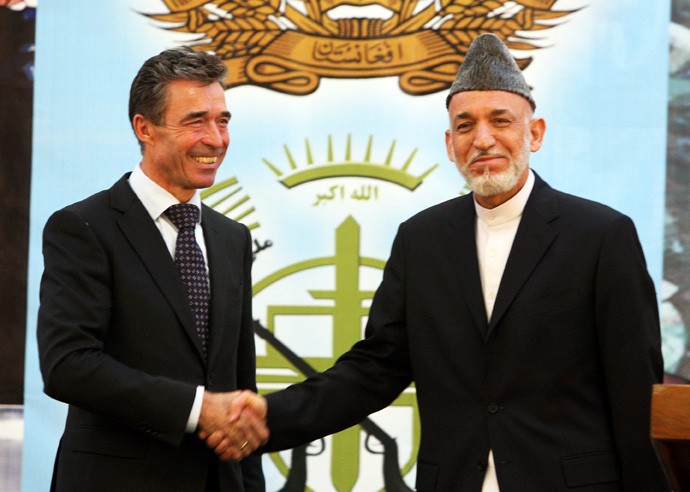UNITED NATIONS — The head of NATO said Wednesday that the U.S. threat of a military strike had forced Syria to agree to surrender its chemical weapons, and the potential use of force must remain to help compel compliance with its agreement to disarm.
But he added that a United Nations inspection program to find, secure and move or destroy Syria’s chemical weapons stockpile could help solidify President Bashar Assad’s grip on power because such a program would require his assistance and probably take many months to complete.
Anders Fogh Rasmussen, the secretary-general of the North Atlantic Treaty Organization and former Danish prime minister, made the comments while he was in New York for the United Nations General Assembly.
He said he’d spoken this week to President Barack Obama and credited him with forcing Assad’s hand by threatening military force. He broke, however, with the Obama administration’s recent claim that moderate rebels were gaining ground in Syria, saying Islamic militants were a growing problem among Syrian rebels trying to dislodge Assad.
“To be very open and frank, it is a fact that the opposition counts extremists and terrorist groups, and I don’t shy away from using the phrase ‘terrorist groups,’ “ Rasmussen said. “Of course it is weakening the opposition.”
Despite saying the threat of force should continue to be levied against Syria, Rasmussen acknowledged that any military intervention there would be more difficult than it had been in Libya in 2011, when a NATO-led bombing campaign helped rebels overthrow Moammar Gadhafi.
“Libya and Syria are two different countries and two very different cases,” he said. “In Libya, we operated on the basis of a U.N. mandate, and we got active support from countries in the region. None of these conditions are fulfilled when it comes to Syria.”
Rasmussen said those conditions were compounded by Syria’s multi-ethnic makeup.
“Syria is a more complicated society — ethnically, religiously and politically — so you can’t forge a political settlement through a military operation. Different ethnic groups are in conflict with each other, and you can’t force them through a military operation to sit around a table and find a solution.”









